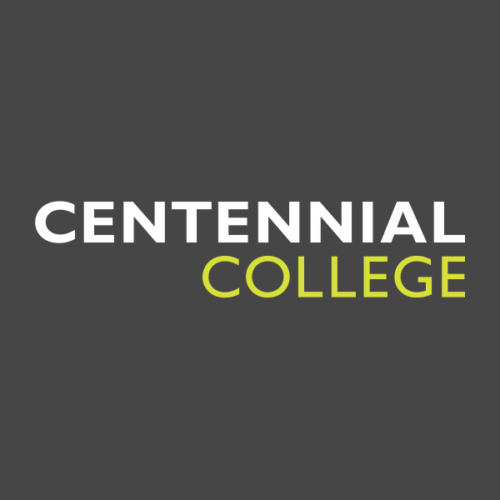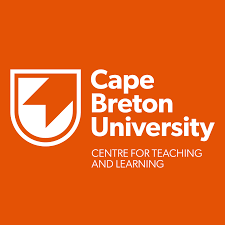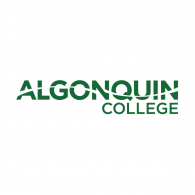-
 Centennial college is a publicly-funded, Ontario-based post-secondary institution. It welcomes cultural diversity and plurality. The college was set up with the mission to provide graduates with a lifelong rewarding relationship with the college community. The college has a wide alumni base. Alumni can join the alumni board of directors and become dedicated volunteers. At present, the alumni board attends over 100,000 graduates. Since the college has scaled vast breadths and depths of teaching, it is not possible to condense its course and programs in a list. It is possible to study almost anything here.
Centennial college is a publicly-funded, Ontario-based post-secondary institution. It welcomes cultural diversity and plurality. The college was set up with the mission to provide graduates with a lifelong rewarding relationship with the college community. The college has a wide alumni base. Alumni can join the alumni board of directors and become dedicated volunteers. At present, the alumni board attends over 100,000 graduates. Since the college has scaled vast breadths and depths of teaching, it is not possible to condense its course and programs in a list. It is possible to study almost anything here. -
 Cape Breton University is a unique place where students, who believe that they can affect the world, discover what that effect is going to be. As one of Canada’s youngest and most ambitious universities with a comprehensive set of liberal arts, science and professional programmes and a unique commitment to community, economic development, aboriginal learning and research into many aspects of environment and culture. Home to approximately 3,500 students, CBU’s vision of higher education allows students to pursue diverse fields of study in programmes with national reputations in final year student satisfaction, faculty-student interaction and employability. CBU prides itself on providing a personalised undergraduate education that focuses on academic and research excellence, student services, a vibrant campus life and cutting-edge technological tools. The university offers outstanding applied research opportunities to students, and technical assistance to business, industry and community organisations. Home to Canada’s only Master of Business Administration in Community Economic Development, CBU is also known as Atlantic Canada’s leader in Aboriginal post-secondary education.
Cape Breton University is a unique place where students, who believe that they can affect the world, discover what that effect is going to be. As one of Canada’s youngest and most ambitious universities with a comprehensive set of liberal arts, science and professional programmes and a unique commitment to community, economic development, aboriginal learning and research into many aspects of environment and culture. Home to approximately 3,500 students, CBU’s vision of higher education allows students to pursue diverse fields of study in programmes with national reputations in final year student satisfaction, faculty-student interaction and employability. CBU prides itself on providing a personalised undergraduate education that focuses on academic and research excellence, student services, a vibrant campus life and cutting-edge technological tools. The university offers outstanding applied research opportunities to students, and technical assistance to business, industry and community organisations. Home to Canada’s only Master of Business Administration in Community Economic Development, CBU is also known as Atlantic Canada’s leader in Aboriginal post-secondary education. -
 University Canada West is a contemporary independent university located in the heart of vibrant Vancouver. Established in 2004, UCW offers a range of career-focused programmes; including the Bachelor of Commerce, Bachelor of Arts in Business Communication, Associate of Arts and Master of Business Administration. Courses are offered at the downtown Vancouver campus and online, too. Offering courses online brings flexibility to education, allowing those who may not have otherwise had the opportunity to gain respected qualifications.
University Canada West is a contemporary independent university located in the heart of vibrant Vancouver. Established in 2004, UCW offers a range of career-focused programmes; including the Bachelor of Commerce, Bachelor of Arts in Business Communication, Associate of Arts and Master of Business Administration. Courses are offered at the downtown Vancouver campus and online, too. Offering courses online brings flexibility to education, allowing those who may not have otherwise had the opportunity to gain respected qualifications. -
 Dedication to student success is Algonquin College’s guiding principle and is demonstrated through the quality of its programmes, staff, the continual expansion of its facilities, and by forging strategic partnerships. Every action since the College was established has been to ensure students have access to the education and skills training demanded by the marketplace to launch a rewarding career.
Dedication to student success is Algonquin College’s guiding principle and is demonstrated through the quality of its programmes, staff, the continual expansion of its facilities, and by forging strategic partnerships. Every action since the College was established has been to ensure students have access to the education and skills training demanded by the marketplace to launch a rewarding career. -
 Alexander College is a private post-secondary institution with campuses in Burnaby and Vancouver. It serves approximately 3,000 students every year and offers a variety of undergraduate degree and transfer programs, including University Transfer, Associate of Arts degree and Associate of Science degree. An integrated English for Academic Purposes program is also available to assist non-native English speakers with their transition to university level studies in the English language. Alexander College is recognized and accredited by the BC Ministry of Advanced Education, Degree Quality Assurance Board (DQAB), BC Education Quality Assurance (EQA) program, and is a proud participant in the BC Transfer System, organized by the BC Council on Admissions and Transfer (BCCAT).
Alexander College is a private post-secondary institution with campuses in Burnaby and Vancouver. It serves approximately 3,000 students every year and offers a variety of undergraduate degree and transfer programs, including University Transfer, Associate of Arts degree and Associate of Science degree. An integrated English for Academic Purposes program is also available to assist non-native English speakers with their transition to university level studies in the English language. Alexander College is recognized and accredited by the BC Ministry of Advanced Education, Degree Quality Assurance Board (DQAB), BC Education Quality Assurance (EQA) program, and is a proud participant in the BC Transfer System, organized by the BC Council on Admissions and Transfer (BCCAT). -
 Alfred Adler began community psychology by articulating the constructs of gemeinschaftsgefühl (social interest or the connection between individual and community well being) and systemic/structural community intervention (such as preventative public health measures). Adler University, as a higher education institution, continues his work today through the production of three outcomes which are specified in the Mission: Socially Responsible Practitioners: Socially responsible practitioners are educated to be effective personal and social change agents in the pursuit of justice. Community Engagement: Community engagement is a collaborative partnership that strengthens communities, provides service, and prepares students. Social Justice: Social justice refers to the equitable distribution of economic, political, civil, cultural, social, and other resources and opportunities in society to promote the optimal development of persons and communities.
Alfred Adler began community psychology by articulating the constructs of gemeinschaftsgefühl (social interest or the connection between individual and community well being) and systemic/structural community intervention (such as preventative public health measures). Adler University, as a higher education institution, continues his work today through the production of three outcomes which are specified in the Mission: Socially Responsible Practitioners: Socially responsible practitioners are educated to be effective personal and social change agents in the pursuit of justice. Community Engagement: Community engagement is a collaborative partnership that strengthens communities, provides service, and prepares students. Social Justice: Social justice refers to the equitable distribution of economic, political, civil, cultural, social, and other resources and opportunities in society to promote the optimal development of persons and communities.
